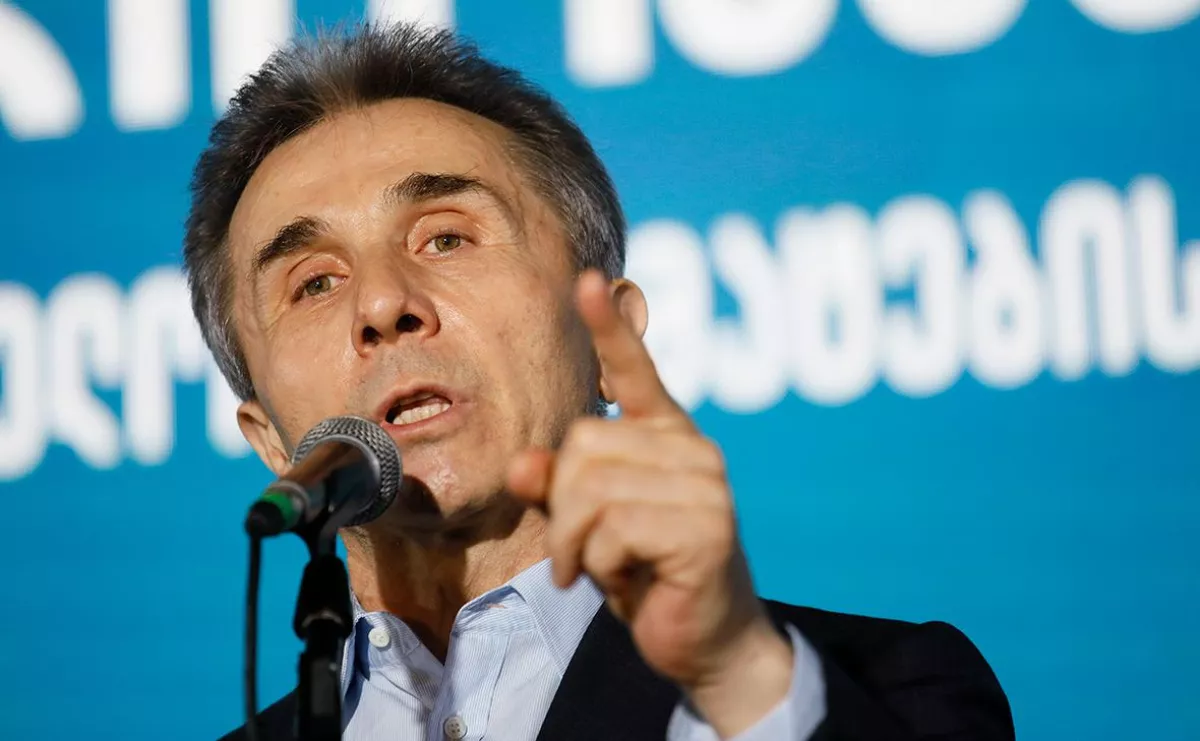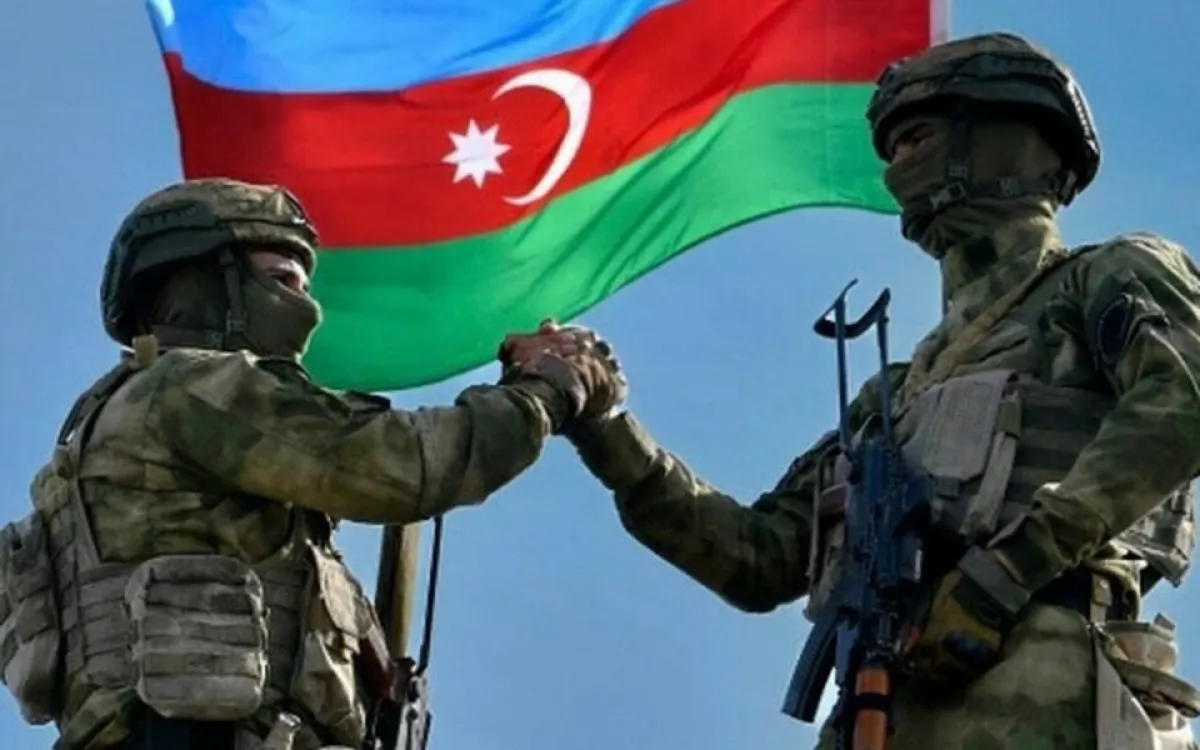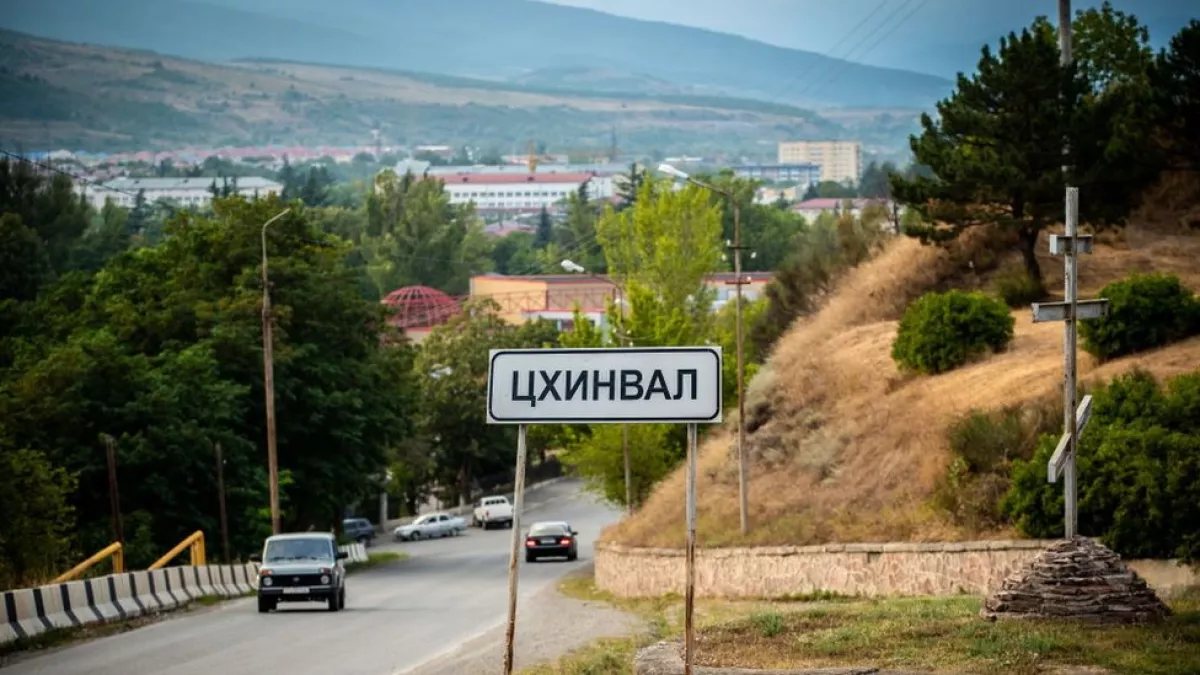Georgian Dream’s Tskhinvali plan Apologies as a tool for territorial integrity
The issue of restoring territorial integrity has become central in the parliamentary elections in Georgia. While the opposition links the prospects of this process solely to joining the EU and NATO, the ruling party, Georgian Dream, emphasizes agreements with Russia and reconciliation with Abkhazian and Ossetian communities.
On Saturday, September 14, Bidzina Ivanishvili, the leader of Georgian Dream, speaking in Gori (a city affected by the 2008 war), stated: “Immediately after the October 26 elections, when those who instigated the war would face justice when all those guilty of destroying the Georgian-Ossetian brotherhood and coexistence will receive their due, harshest legal verdict, we will find it in ourselves to apologize that acting upon orders, the treasonous “National Movement” put our Ossetian sisters and brothers up in flames.”

Bidzina Ivanishvili's remarks have sparked sharp criticism from the opposition but have been positively received in Russia. From the Russian side, there are now almost no categorical demands for Georgia to "acknowledge the realities" and "independence" of the separatist entities, except for statements from some of the separatists themselves.
It is an axiom that any conflict, sooner or later, ends with reconciliation and mutual forgiveness. This is particularly true for conflicts between people who are destined to live within the same state, as frequently noted by representatives of Georgian Dream in their statements.
“Our heroes fell in the name of a united Georgia, and to implement this idea, a great reconciliation with our Ossetian and Abkhazian brothers and sisters is needed. And great reconciliation is impossible without apologies. There are two ways to resolve a conflict: through war or mutual forgiveness. We choose the path of mutual forgiveness,” stated Mamuka Mdinaradze, Secretary of the ruling party Georgian Dream.
Bidzina Ivanishvili's statement about the need to apologize to the Ossetians was not only directed at the Ossetians themselves. It was primarily addressed to Russia. Bidzina Ivanishvili is well aware of Russia's current situation and what it needs first and foremost.
The situation Russia finds itself in today is in stark contrast to August 2008. Back then, Russian society was euphoric over a "quick and easy victory over Georgia." In contrast, the Ukrainian invasion of Kursk in August 2024 has exposed Russia's inability to secure its border with Ukraine and protect its internationally recognized territories.
Meanwhile, thousands of well-trained Russian soldiers, who are sorely needed in Kursk, are stationed in the so-called "South Ossetia," ostensibly "protecting" the South Ossetians from an alleged "genocide" that poses no real threat to them. Meanwhile, over 180,000 Russian citizens, mostly ethnic Russians, have become refugees in Kursk.
For Russia, which is bogged down in the Ukrainian war, the occupied Tskhinvali region has become a burden. Additionally, the separatist puppets in Tskhinvali are entirely dependent on Russian support, with over 80 per cent of the so-called "South Ossetia's" budget coming from Russian aid that is now needed by the refugees from Kursk.
On strategically unimportant and "dead-end" territory beyond the Caucasus Range, Russia is compelled to maintain a full military base near Tskhinvali with a 4,000-strong contingent and modern equipment. Meanwhile, on the Ukrainian front, every battalion is considered precious. This setup represents an excessive luxury for Russia, which is scaling back its military presence far from Ukraine.
Russian military involvement in Syria has also been significantly reduced. Additionally, some Russian troops were "freed up" following the withdrawal of peacekeepers from Azerbaijan’s Karabakh region, which occurred after the final dissolution of the separatist "Artsakh" project in September 2023.

It appears that the precedent set by the dissolution of the separatist "Artsakh" could be applied to the currently Russian-occupied Tskhinvali region in Georgia in order to free up military resources. In Russia, the so-called "South Ossetia" is increasingly seen as a useless burden with no practical purpose. However, without political decisions, it is impossible to completely relocate the military base from the Tskhinvali region. Moreover, such a move must be executed in a way that prevents Russian "patriots" from accusing the Kremlin of "betraying loyal Ossetians," who are supposedly at risk of "genocide" without Russian military protection.
The statements from Georgian politicians in the ruling party regarding apologies to the Ossetians provide a convenient excuse for the Kremlin to start eliminating these dependencies. Moscow representatives might well say to the Ossetians: "The Georgians have apologized and are no longer the 'bad Georgians,' but rather the 'good and correct Georgians,' 'friends of Russia.' You will live peacefully with them and receive funding for your needs from them. Meanwhile, the Russian army must protect its own population from 'genocide,' such as in Kursk." Such conversations from Moscow representatives with the Ossetians are quite plausible following Bidzina Ivanishvili's statement.
There is no doubt that negotiations on the terms for Georgia’s return of the Tskhinvali region are underway in earnest. It is possible that Moscow and Ivanishvili are close to conducting a joint operation to "close" the South Ossetian separatist project. As a result, each side would gain the dividends it seeks: Bidzina Ivanishvili and "Georgian Dream" would boost their political support within Georgia as "unifiers of territories," while Russia would shed the burden of supporting the separatists, with Ivanishvili’s apology to the Ossetians allowing this to be framed as a "triumph of Russian geopolitics."
The possibility of such developments is suggested by Tbilisi Mayor Kakha Kaladze’s statement, in which he essentially accused the opposition of trying to sabotage the process of restoring the country's territorial integrity.
“Look, a tiny step has been taken in this direction, and who have you become like? When it comes to specifics, and I am convinced this will be soon, you will probably ask your masters for tanks to prevent the restoration of territorial integrity. Honestly, what you are presenting is shameful. It is pure political speculation taken out of context. Show me where Bidzina Ivanishvili specifically said that we will apologize to the occupiers or the killers. Where was this said? It is a lie and an attempt to mislead the public. We are a team taking steps to unite the country,” said Kaladze.
The Ossetians themselves are also somewhat aware of the real objectives behind Bidzina Ivanishvili’s apologies. Ossetian blogger Alan Mamiev wrote on his Telegram channel: “In my opinion, the goal of the Georgian overtures is to negotiate with Moscow for the surrender of 'South Ossetia' and Abkhazia, just as 'Artsakh' was surrendered. To achieve this, they are willing to make any promises, sing any songs, and tell any tales... The threat to the people of Abkhazia and 'South Ossetia' is the same as it was to the people of Artsakh—the scheme is the same.”
Regarding the "people of Artsakh," Alan Mamiev did not mention that Azerbaijan considered the Karabakh Armenians as its own citizens and long persistently offered them peaceful reintegration. For several years, the Azerbaijani authorities proposed plans for reintegration. However, the majority of Karabakh Armenians, intoxicated by nationalism and hatred, chose to leave. They were not forcibly removed but were not prevented from leaving either.
Furthermore, Ossetians may not only remain in the Tskhinvali region but could also see some return from Russia, where they left due to economic hardship and the deadlock in the occupied area. Fortunately, among the Ossetians, there is less anti-Georgian sentiment compared to the extreme anti-Azerbaijani and Turkophobic views that were prevalent among Karabakh Armenians.

The dissolution of the "Tskhinvali separatist project" would also bring the reintegration of Abkhazia closer. However, this will likely involve separate negotiations and agreements between Georgia and Russia. Moscow has already started reducing funding for the Sukhumi-based regime, but has done so under the pretext of separatists sabotaging Russia's de facto annexation of Abkhazia.
One of the obstacles to reintegrating Abkhazia is the pro-Russian Armenian lobby, which has a firm grip on the region. While discussions among Abkhazians about reconciliation with Georgians and the possibility of living in a "confederation" with Georgia are ongoing, such sentiments are not present among the Abkhaz Armenians. This is not surprising, as Armenians have become a de facto majority in some regions of Abkhazia, outnumbering the Abkhazians. It seems that the Armenian lobby views Abkhazia as part of a unified "seaside" zone for their settlement, alongside Russian Sochi. In contrast, Tskhinvali has virtually no Armenian population, and there is little interest in relocating to this region. Without intervention from the "ancient and long-suffering people," the issue of returning the so-called "South Ossetia" to Georgia could be resolved much more quickly.
Apparently, Ivanishvili understands that it is more feasible to expect the return of the Tskhinvali region sooner than the return of Abkhazia. To this end, it may be sufficient to "propagandistically play along" with Moscow, which the leadership of Georgian Dream is doing by discussing reconciliation with the Ossetians.
Vladimir Tskhvediani, Georgia, for Caliber.Az








